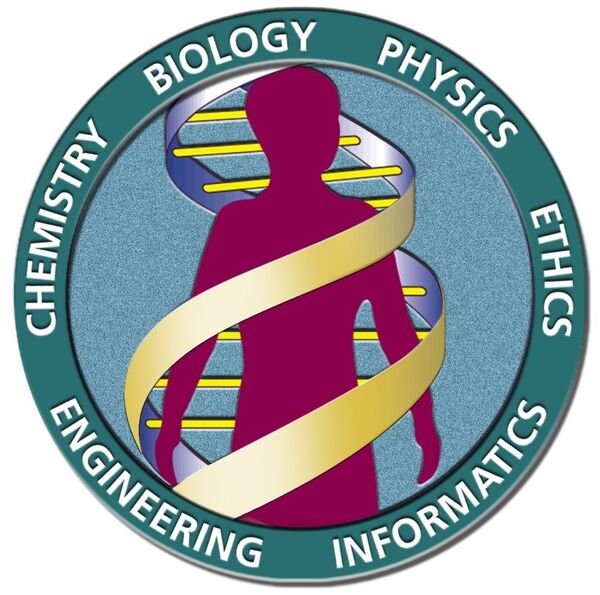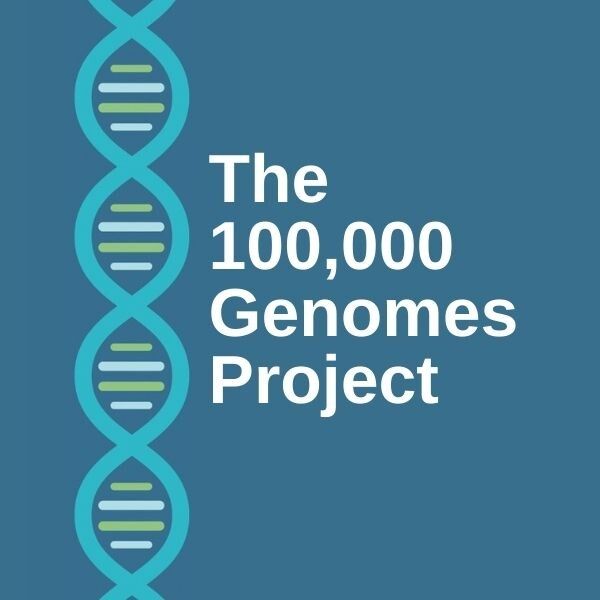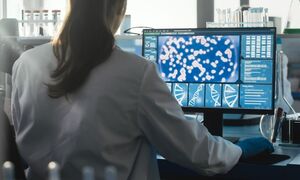Turning science into healthcare
Genomics England aims to help everyone benefit from genomic healthcare.

The story behind us and The 100,000 Genomes Project
Genomics England began as a vessel to execute the UK Government's bold plan to sequence 100,000 whole genomes and incorporate genomic medicine into routine care in the NHS, a feat we achieved in 2018 after just 5 years.
Though recruitment to the Project has ended, its impacts are still being realised – transforming the way people are cared for and bringing advanced diagnosis and personalised treatments to those who need them.
18.5%
of data turned into actionable findings
20-25%
of rare disease patients have received actionable findings
~50%
of cancer cases contain the potential for a therapy or clinical trial
The Human Genome Project
April 2003 marked one of the most significant scientific breakthroughs of modern times. After years of painstaking research carried out by thousands of dedicated scientists across the world, the complete genetic code of a human being – their genome – was published.
The Human Genome Project, as this work was known, was the largest international collaboration ever undertaken in biology with British scientists leading the global race to read the 3 billion letters of the human genome, letter by letter. This is a technique called sequencing.
Since then, we've been turning very important scientific discoveries about DNA and the way it works into a potentially life-saving reality for NHS patients across the country.

Important takeaways from the Human Genome Project
Humans only have ~21,000 genes
One of the great surprises from the Human Genome Project was that there were only about 21,000 genes – about the same number as a starfish. The role of the rest of the DNA in a human’s genome – in fact a staggering 95 percent of it – was a mystery.
Cost and speed
It had taken 13 years and over £2 billion to laboriously read every letter of the human genetic code. The project showed that both the cost and speed of sequencing genomes needed to be improved in order to incorporate genomics into routine care.
The idea for the 100,000 Genomes Project is formed
After the Human Genome Project, it became clear that more of the human genome needed to be explored, and faster.
Scientists learned the remaining 95% of DNA is not irrelevant as was once thought but that much of it has a critically important role, influencing, regulating and controlling the rest.
Genome sequencing also improved. Advancing technology allowed a human genome to be sequenced in a few days for less than £1000. This leap in the speed and cost opened up the potential of genomics and brought it within reach of mainstream healthcare.
And perhaps the most important piece of the puzzle was the ability to partner with the NHS to gather consenting participants' health information.

Combining the science of whole genome sequencing and patient data to create more personalised heathcare is where the 100,000 Genomes Project was born.
The 100,000 Genomes Project + Genomics England
In late 2012, then-Prime Minister David Cameron announced the 100,000 Genomes Project.
Genomics England, a company wholly owned and funded by the Department of Health & Social Care, was set up to deliver this flagship project and sequence 100,000 whole genomes from NHS patients, something that at the time no one in the world had even attempted.
The project represented a great opportunity to translate our world class genomic science into world leadership in genomic medicine.
The aims of the 100,000 Genomes Project
Create an ethical and transparent programme based on consent
Bring benefit to patients and set up a genomic medicine service with the NHS
Kickstart the development of a UK genomics industry
Key players in the 100,000 Genomes Project
NHS Genomic Medicine Centres (GMCs)
These centres were set up within the NHS for the project. Each included several NHS Trusts and hospitals.
They recruited and consented patients and provided DNA samples and clinical information for analysis.
Since the project ended, NHS GMCs have changed slightly and are now called NHS Genomic Medicine Service Alliances.
Illumina
Illumina, a biotechnology company, were commissioned to sequence the DNA of participants.
They returned the whole genome sequences to Genomics England.
Research Network
We created the Research Network to bring together funders, researchers, NHS teams and trainees.
They analysed the data to help ensure benefits for patients and an increased understanding of genomics.
Creating the National Genomic Research Library
One of the most important resources to come from the 100,000 Genomes Project is the National Genomic Research Library, a library of de-identified samples, genomic data, and other associated health data that approved researchers can access via our secure Research Environment.
The National Genomic Research Library is a partnership between NHS England and Genomics England. Patients offered whole genome sequencing as part of their clinical care in the NHS Genomic Medicine Service are also given the option to consent to have their health and genomic data added to the Library.
Researchers who use the National Genomic Research Library can learn more about everyone’s health by looking for patterns in the de-identified data of thousands of patients.
Being able to compare all de-identified patient data in one place provides researchers with an opportunity to better understand diseases, develop new treatments and can lead to new diagnoses.

Further details on the 100,000 Genomes Project
To make genomics a reality for the NHS it had to be of high quality, fast and affordable with results that are readily understood. Below are the focuses of the project and the challenges overcome in order to make that happen.
Focuses of the project
Accelerating research
The Project's benefits are still being realised, with researchers from around the world analysing data to make scientific breakthroughs.




